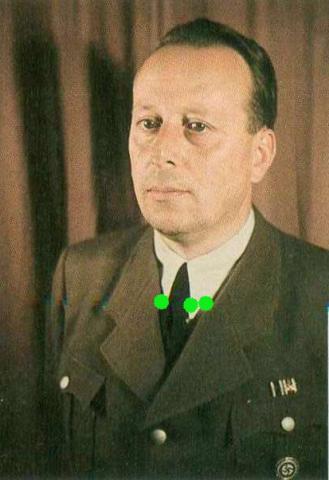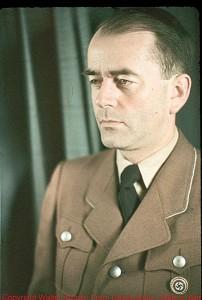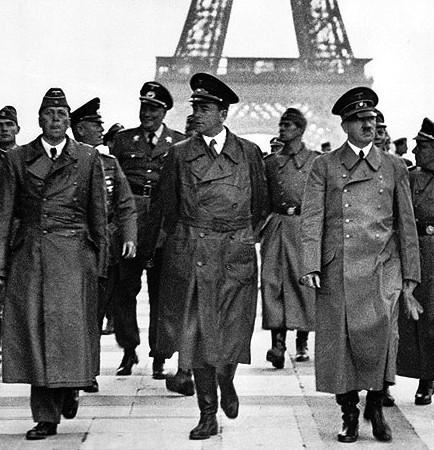Newsletters
Select the newsletter(s) to which you want to subscribe or unsubscribe.
Most Popular Articles
Views: 180,587
Views: 82,115
Views: 70,488
Views: 67,246
Views: 53,339
Views: 46,894
Views: 44,209
Views: 41,717
Views: 40,659
Views: 35,174
Views: 27,087
Views: 26,137
My Articles
- Early Articles
- The Third Reich
- Hans-Ulrich Rudel: The man who might have been the next German Führer
- The Search for WWII Mass Graves
- The Fake Legends of Adolf Hitler’s “Jewish Grandfather”
- Latest expression of virulent Jewish hatred: Hitler's parents' grave destroyed
- The Gleiwitz “False Flag” Incident is Pure Fiction
- Nuremberg hangman was a U.S. Navy-diagnosed psychopath who slowly strangled top Nazis
- Heroic Women
- Holo Frauds & Quacks
- Zisblatt: A Special Jewel
- "Diamond Girl" Fiction
- Second Response to J. Neander
- Denis Avey: Man Who Would be Righteous
- Avey, BBC ,and British Government
- Why BBC and Labour Backed Avey Hoax
- Pedophile Promotes Denis Avey Hoax
- The Shadowy Origins of Night
- Elie Wiesel and the Mossad, Part 1
- Elie Wiesel and the Mossad, Part 2
- Elie Wiesel and the Mossad, Part 3
- Elie Wiesel and the Mossad, Part 4
- Septuagenarian’s “Holocaust” memories dangerous to youth, wrong as history
- “Child survivor” Paul Argiewicz and the missing five years
- Time to call Ken Waltzer a fraud?
- Max Hamburger Says He Is the ‘Zombie Man’
- Naftali Fürst claims to be in Famous Buchenwald Photo as 12-year-old boy
- Martin Gray: Another Polish Jew surlievor*
- Yehuda Bacon memoir at Elie Wiesel Cons The World
- History teacher who outed holocaust fraudster Joseph Hirt calls for apology or prosecution
- More Holocaust Revisionism
- Jewish population figures don't add up
- My response to Alan Dershowitz's essay “The origin of fake news in holocaust denial” published at Gatestone Institute
- Hungarian Deportation: An Objectivity Lesson
- Thoughts on the Jewish Problem and the HoloHoax
- Britain’s collusion in creating “death camp” atrocity lies exposed
- Are we nearing the End of Auschwitz?
- Director says knowledge about Auschwitz came from survivors’ testimonies
- World Jewish Congress
- Special Treatment for Jews
- Stop Special Treatment for Jews – a way forward
- New Jersey authorities expose Jewish welfare fraud
- How Orthodox Jewry is robbing an American town
- Religion is key to Lakewood's 'special treatment' for Jews
- New Jersey rabbis face prison in kidnapping conspiracy
- Explosive growth of the ultra-Orthodox community in Lakewood
- Lakewood's woes: Jews create chaos in Gentile societies
- Lakewood Orthodox welfare cheats offered amnesty
- Large Orthodox Jew families an unfair burden for schools
- Rapid growth of Orthodox population creating havoc in NY-NJ
- Orthodox clinic owner steals $7 mil from Medicaid
- Mosberg indicted in 2008 on corruption, bribery charges
- New Jersey town's losing battle to prevent Orthodox Jewish takeover
- Seven NY Orthodox in $14 million scam to steal school money
- Brooklyn clinic owned by Orthodox Jews investigated for vaccine fraud
- Fox News on problems Hasidic Jews bring to U.S. communities
- Movement Controversies
- Kevin MacDonald on record saying whether the Holocaust actually happened is “not important”
- Greg Johnson echos Kevin MacDonald in opposing 'Holocaust' revisionism - One must ask why
- Everything Greg Johnson knows about Holocaust Revisionism he learned from Mark Weber
- The Unforgivable Sins of Mark Weber
- The Goebbels-Vlasov-Irving Question
- The Goebbels-Vlasov-Irving Question, Part 2
- The Rise and Fall of Tribal Administrator Rodney Martin
Wenger Family Archive
- Willy Wenger's Writings
- Childhood
- The great hope: The German Reich
- Referendum of April 10th, 1938; 1939 & the Napola School
- The Odyssey of Fahnenjunker Wenger (part one)
- The Odyssey of Fahnenjunker Wenger (part two)
- Albin's Story
- The Final Flight of Poldi Wenger - April 10, 1945
- The Passing of an Era – Remembering Willy Wenger 1926-2017
- Leopold Wenger
- Hitler Youth
- Napola Letters
- Wartime Service
- Letters from Nov. 1939-April '40
- Letters from April-Dec. 1940
- France: January-April 1941
- France, May-December 1941
- France, February - July 1942
- France, July-December 1942
- France, January-June 1943
- Sicily and Lake Constance, June-Nov. 1943
- Eastern Front, Nov 1943-Feb 1944
- Ukraine-Bessarabia, March-June 1944
- Last letters from Eastern Front, Aug. 1944-Jan. 1945
- A close encounter between wartime rivals only revealed 74 years later
- Index
The German Reich
- Hostility towards Germans
- The Anti-German Narrative in the West
- German Self-Hatred and Leftist Ideology
- White Guilt and Islamic Chauvinism
- Britain's 100 year war against Germany
- Searching for the roots of persistent anti-Germanism
- Final Interview With Erich Priebke
- Interview: Horst Mahler on the German Reich
- Interview: G. S. Viereck's 1923 interview with Adolf Hitler
- Odeonsplatz: Interview with Werner Bräuninger
- Law & Government
- Kristallnacht
- A closer look at Kristallnacht 1938 - Jewish hoax?
- Assassination and terror is method of Jewish ethnic warfare
- The Jewish Declaration of War
- What really happened on November 9, 1938
- Damage from 'Kristallnacht' greatly overstated
- Psychological warfare operations explain 'Kristallnacht'
- Ingrid Weckert considers 'Cui Bono?' – Who benefited from Kristallnacht?
- Pegida-Dresden, Tatjana declares guilt complex over!
- 75 Years after "Kristallnacht"
- Kristallnacht
- National Socialism
- Mein Kampf, vol. I
- On 'Public Opinion'
- On 'The Majority Principle'
- On 'Jewish Democracy' and 'The Importance of the Spoken Word'
- On Connecting With The Mass and The 'Away-From-Rome' Movement
- On 'Anti-Semitism On a Religious Basis'
- On 'Defects in our Educational System' and 'Concentration on a Single Enemy'
- On 'State and Economy'
- On 'The Moment of Decay'
- On 'The World War'
- On 'The World War' part 2
- On 'The World War' part 3
- On 'War Propaganda'
- On Discovering Gottfried Feder
- On How Hitler Joined the DAP
- On 'Causes of the Collapse'
- On 'Causes of the Collapse', part 2
- On 'Causes of the Collapse', part 3
- On 'Causes of the Collapse', part 4
- On 'Nation and Race'
- On 'Nation and Race', part 2
- On 'Nation and Race', part 3
- Mein Kampf, vol. II
- On the Political Meaning of 'Folkish'
- On The State, part 1 - Germanization
- On The State, part 2 – Nature and Purpose
- On The State, part 3 – Racial Hygiene and Physical Education
- On The State, part 4 - Needed changes in education
- On The State, part 5 - Selecting talent over social class
- On Subjects and Citizens in the National Socialist State
- On Personality and the Folkish State-Concept
- On the Early Struggle: Significance of the Spoken Word
- On Worldview and Organization of the Folkish State
- On Conflict With the Red Front
- On Conflict With the Red Front, part 2
- Why the Strong Man is Mightiest Alone
- Regarding the Meaning and Organization of the S.A. (Part One)
- Regarding the Meaning and Organization of the S.A. (Part Two)
- Regarding the Meaning and Organization of the S.A. (Part Three)
- The Mask of Federalism
- Propaganda and Organizaion
- The Trade Union Question
- German Post-War Alliance Policy
- Germany's Policy in Eastern Europe, Part One
- Germany's Policy in Eastern Europe, Part Two
- The Right to Emergency Defense
- Mein Kampf, vol. I
- Führer Speeches
Race & History
- Ancient Aryan History
- Race in Civilization
- The Importance of Race in Civilization
- Why are you obsessed with race? What is your agenda?
- The Racial Awakening of the German People by Dr. Rudolf Frercks, parts 1-3
- The Racial Awakening of the German People by Dr. Rudolf Frercks, parts 4-8
- The Racial Awakening of the German People by Dr. Rudolf Frercks, parts 9-10
- World War I
- The Fatherland
- The Fatherland weekly covered the Great The War in Europe from a German-American perspective
- Lying during war: A sampling from “The Fatherland”
- Who were the lawbreakers? Who were the liars?
- Further reports on criminal treatment of German-Americans by England
- Did you know? Excerpts from “The Fatherland” reveal insights into Great European War
- The state of American neutrality in February 1915
- An Essay on English transgressions vs the will of Providence
- Did US-UK alliance against Germany-Austria begin long before 1917?
- The Lusitania Tragedy turned into pretext for US to enter war
- Striking examples from The Fatherland that support the One War thesis
- In September 1915, German-Americans still perceived as lesser Americans
- Why the Money Trust wanted war: The British “Gold Plot”
- More on the Money Trust—The American Pilgrims Society
- The Brussels documents and the heresy of Woodrow Wilson
- In 1916, Wilson Administration drops facade of neutrality; attacks German Americans
- Henry Ford and Cecil Rhodes, on opposite sides, make news in The Fatherland
- An Exchange of Letters bearing on the British Ideal of Cecil Rhodes
- America moves closer to war; Wilson unhappy with conciliatory German Note
- Outnumbered German Fleet best the British in the great Battle of Skagerrack
- Political parties choose their 1916 nominees: Hughes and Wilson
- The submarine Deutschland makes surprise visit to America!
- The Kaiser answers his American attacker
- Zeppelins strike fear in English towns and ports
- Wilson's reelection advances Anglo-American alliance against Germany-Austria
- "The Fatherland" exposes ruthlessness of US conduct of Philippine War under Germany-critic Elihu Root
- More revelations of Anglo-American crimes as condemnation is heaped on Germany
- Wilson addresses Senate; proposes Monroe Doctrine "for the world"
- Talk of peace in January 1917 raises hopes, proves deceptive
- Little hint yet of dramatic events about to break
- Wilson breaks relations with Germany; "The Fatherland" takes new name
- Final installment from The Fatherland—Germany enforces total U-boat blockade
- The Fatherland
- World War II
- Hitler and the Slavs














